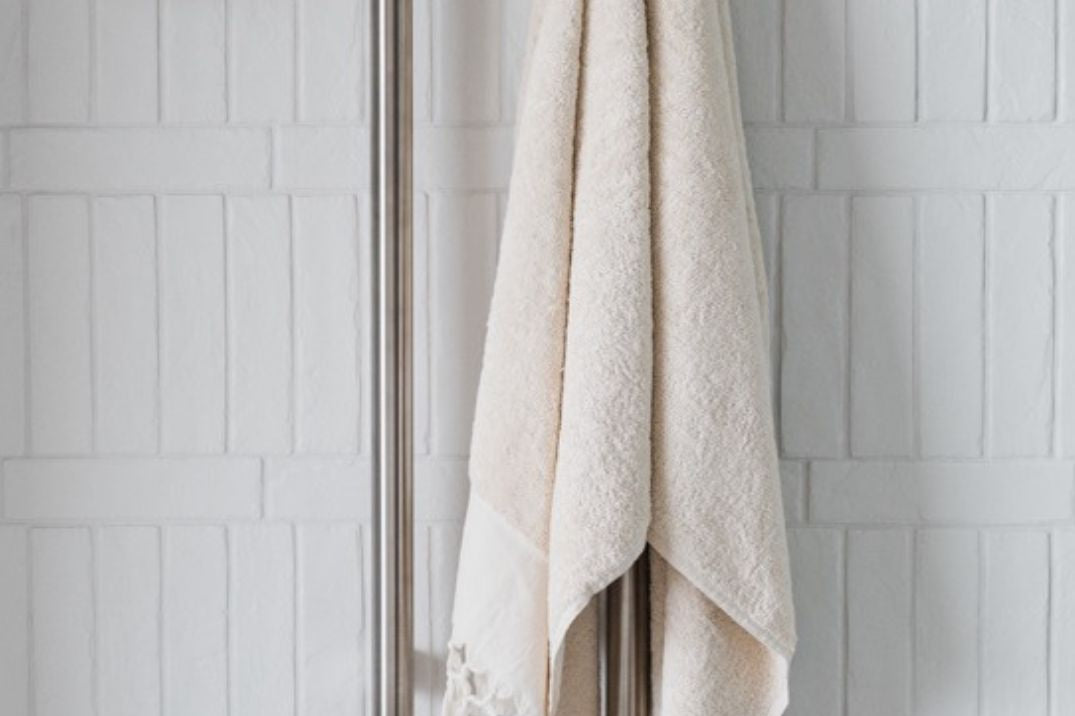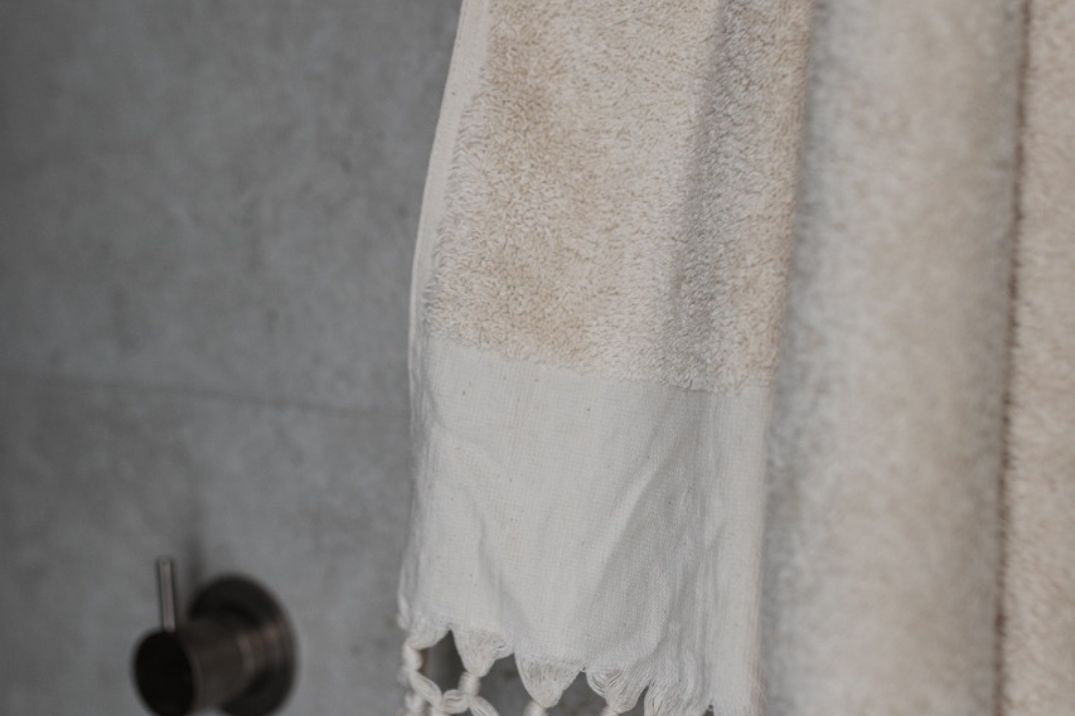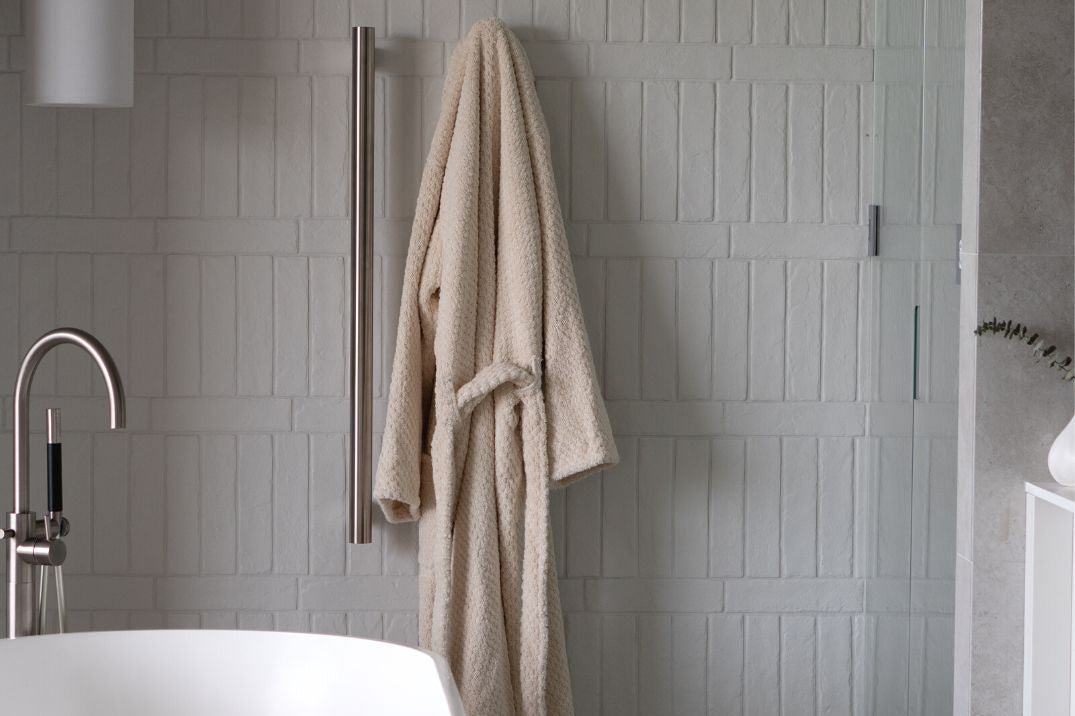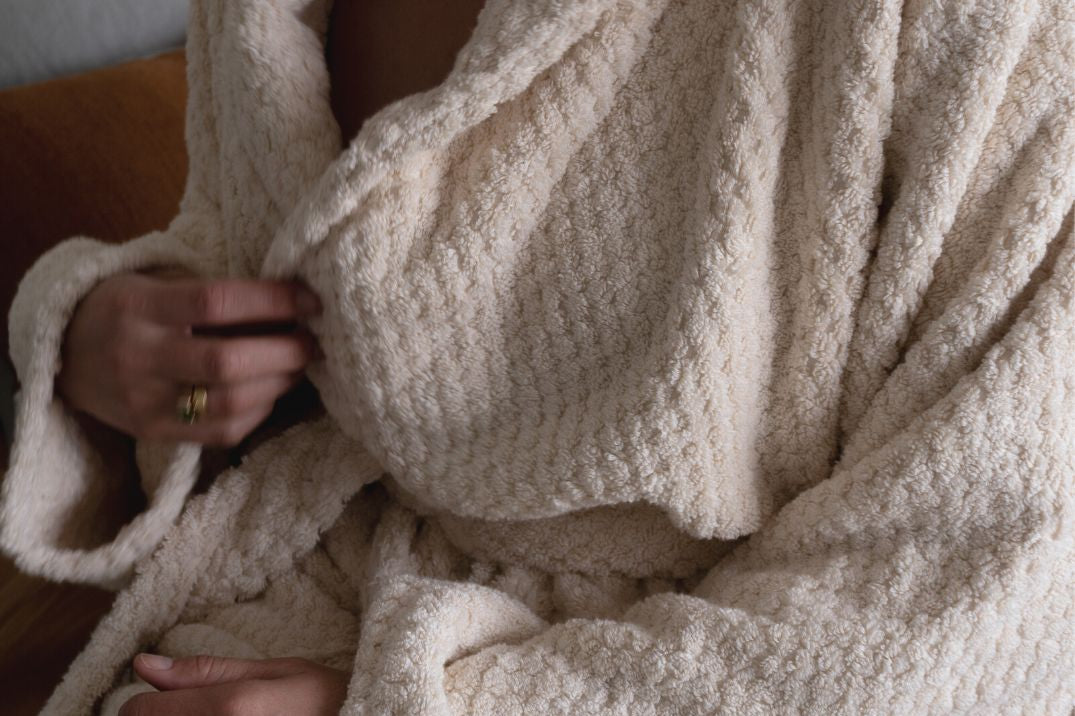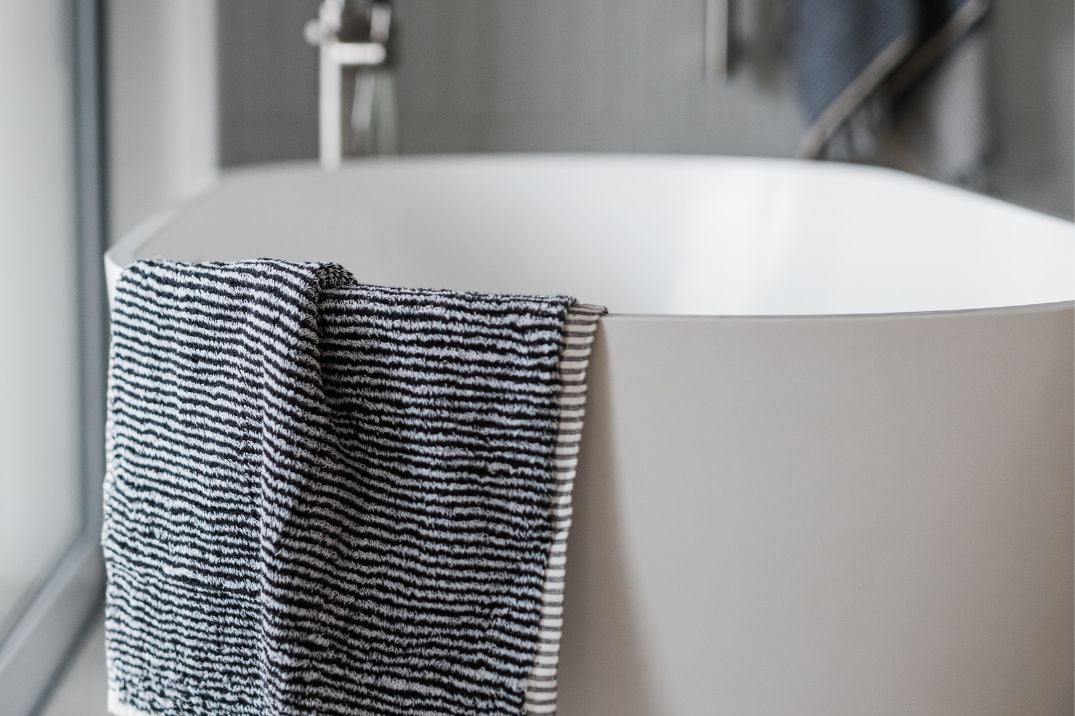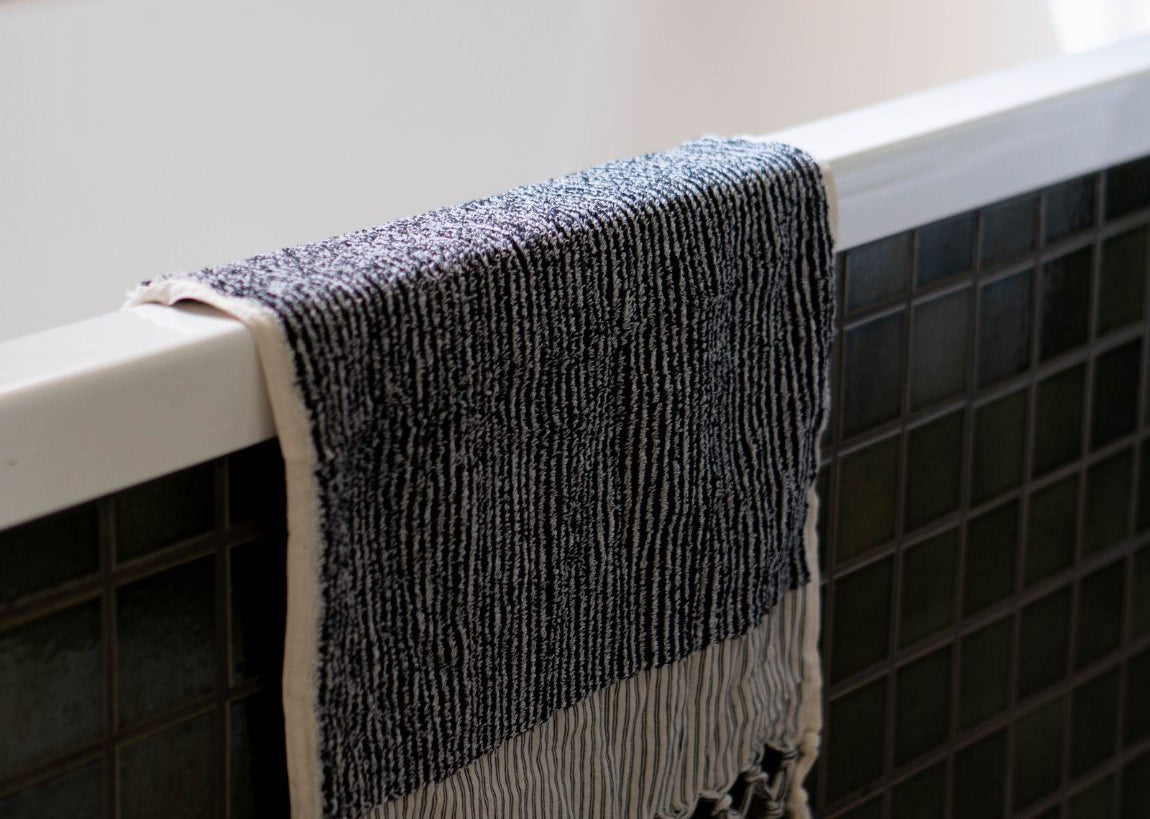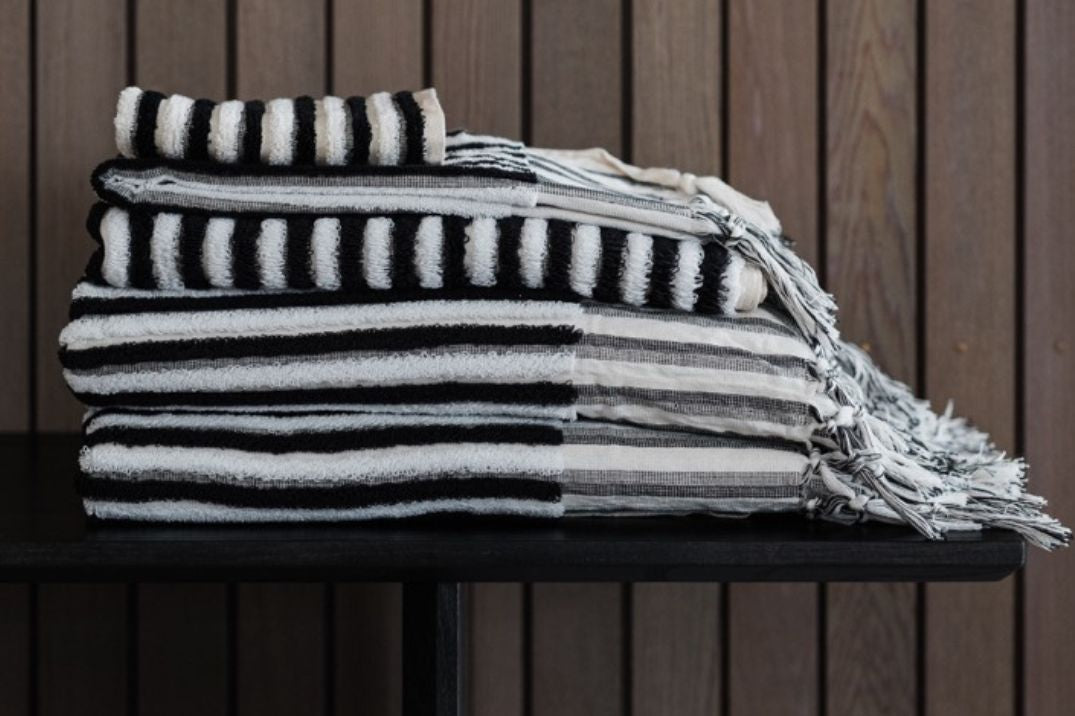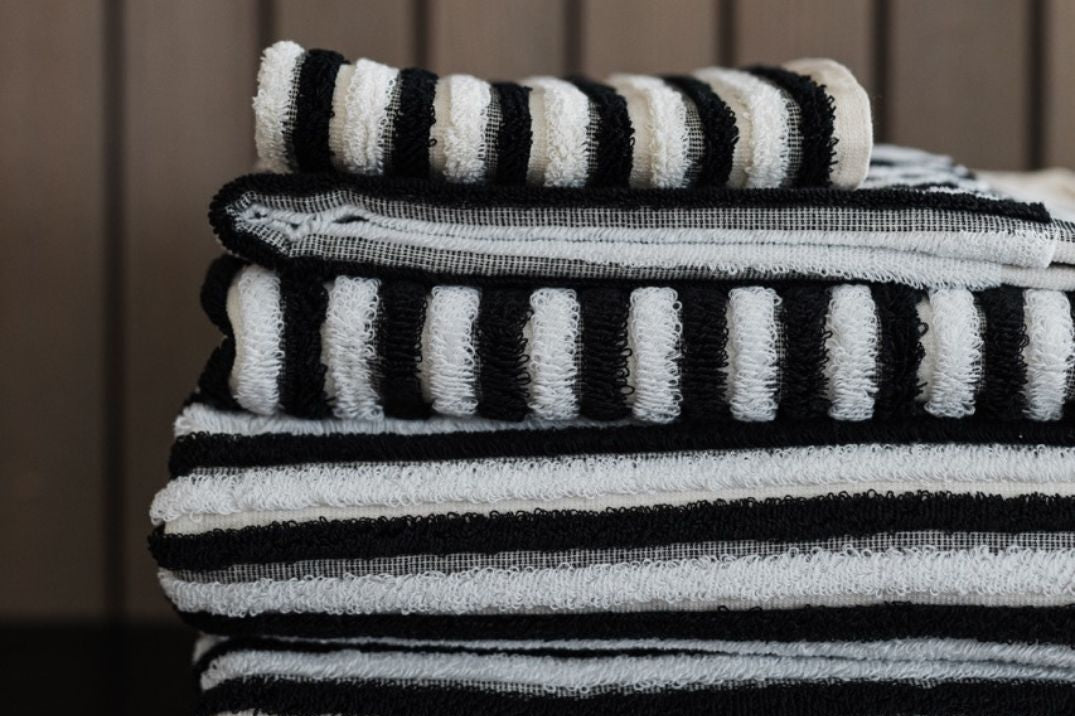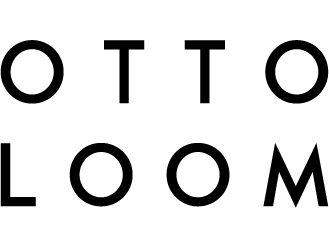We only use 100% GOTS certified organic cotton in our Turkish towels and here is why...
Cotton is one of the the most commonly used fibres in textiles today. Many people think of it as a sustainable and healthy choice, however, the production process of cotton is killing our planet and surrounding communities through the use of synthetic fertilisers, pesticides (nine of the most commonly used pesticides are known to have cancer-causing agents), toxic dyes, heavy metals and intensive irrigation. In fact it is claimed to be one of the top polluters in the world.
Many of the cotton processing factories are pumping highly contaminated water straight into the rivers. These chemicals entering vital waterways have been associated with allergies, skin rashes, respiratory problems, cancer, birth defects, and hormonal & reproductive effects. It is estimated that over 3 million people are poisoned by pesticides from cotton every year, not to mention killing everything that lives in these rivers.
So how is organic cotton different?
Organic cotton is grown using methods and materials that have a low impact on the environment. Organic production systems replenish and maintain soil fertility, eliminate the use of toxic and persistent pesticides and fertilizers, and build biologically diverse agriculture. In addition, federal regulations prohibit the use of genetically engineered seed for organic farming.
Below highlights the differences between organic and conventional cotton:
| Organic | Conventional | |
|---|---|---|
| Seed preparation: | Natural, untreated GMO freeseeds. | Typically treated with fungicidesor insecticides. Possible GMOs. |
| Soil preparation: | Healthy soil through crop rotation. Retains moisture in soil from increased organic matter. | Synthetic fertilizers, loss of soil due to mono- crop culture, intensive irrigation. |
| Weed control: | Healthy soil naturally fight off pests and create balance | Aerial spraying of insecticides and pesticides. Nine of the most commonly used pesticides are known cancer-causing agents. |
| Harvesting: | Natural defoliation from freezing temperatures or through the use of water management. | Defoliation induced with toxic chemicals. |
| Production: | Warp fibers stabilized using double-plying or non toxic cornstarch. | Warp fibers stabilized using toxic waxes. |
| Whitening: | Natural or non toxic whiteners used. | Chlorine bleaching creates toxic by-products, which are released into the environment. |
| Finishing: | Soft scour in warm water with soda ash, for a pH of 7.5 to 8. | Hot water, synthetic surfactants, additional chemicals (sometimes formaldehyde). |
| Dyeing: | Low-impact fiber-reactive or natural dyes with low metal and sulfur content. Otto loom towels are dyed using botanicals and vegetables. | High temperature containing heavy metals and sulfur. |
| Printing: | Low-impact, water-based inks and/or pigments with no heavy metals. Ottoloom towels have no printing, all the patterns come from the loom | Pigments may be petroleumbased and contain heavy metals. Run-off spills into waterways, polluting streams. |
| Fair trade: | Social criteria in place to ensure safe, healthy, non-abusive, non-discriminatory environment with fair living wages. | No social screening. Possible child or forced labor used. Facilities may be unsafe and unhealthy. |
| Price: | Initial cost more expensive. Long-term advantages: priceless. | Initially cheaper. Long-term impact on environment: devastating. |

Shop Sustainably
